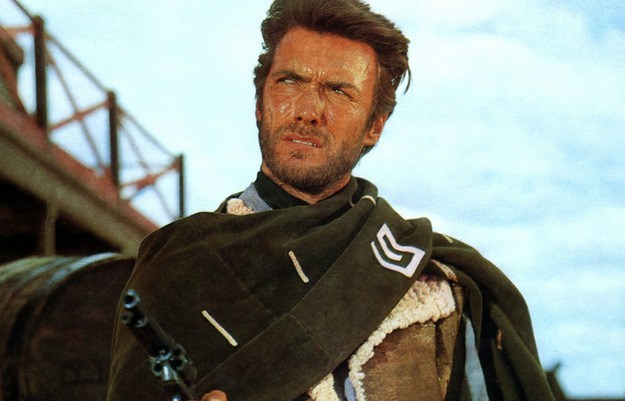A Fistful of Dollars
Here's where it began. 1964's A FISTFUL OF DOLLARS made Clint Eastwood, previously best known for his role on T.V.'s Rawhide, a household name. An international superstar. My first awareness of him was EVERY WHICH WAY BUT LOOSE from over a decade later. By then he'd moved past his increasingly gritty Westerns. For a time anyway, PALE RIDER (1985) and UNFORGIVEN (1992) were yet to come. My father spoke of the "spaghetti Westerns" (produced by Italians but often shot in Spain) Clint did before I was born. Films where a drifter would ride into a town and all sorts of mayhem would follow. Ostensibly a savior, but often merely another dilemma. And he's really fast with a pistol.
The "Man with No Name" happens upon a hamlet known as San Miguel. Two families, the Rojos and the Baxters, seek to control its operations. They are not above slaughtering soldiers passing through with their cache of gold. The stranger smells an opportunity to make some dinero. Repeatedly he will feign loyalty to each side, engineering deceptions in which he will profit by say, returning someone who is kidnapped. The stranger is a scoundrel, make no mistake, but takes time to help a young woman escape with her husband (who'd been framed by one of the Rojos for cheating at cards) and young son before the final carnage.
The MWNN also enlists the assistance of motel owner Silvanito (Jose Calvo), who of course is placed in peril at one point, and coffin maker Piripero (Joe Edger), who never has a shortage of work in San Miguel.
Director Sergio Leone was honing his style with his debut, which is comparatively primitive and small scale to his later sequels and other works. But legendry was already achieved with all those close ups and deft editing (by Roberto Cinquini and Alfonso Santacana). The violence is swift but not over the top this time out. Clint gets to toss off a few good one liners, a trademark that would continue for many of his filmic appearances. The grand opera is completed with Ennio Morricone's whistling score, his first of many classics. I especially liked the frequent use of dust blowing in the wind, an unmistakable analogy.



Comments